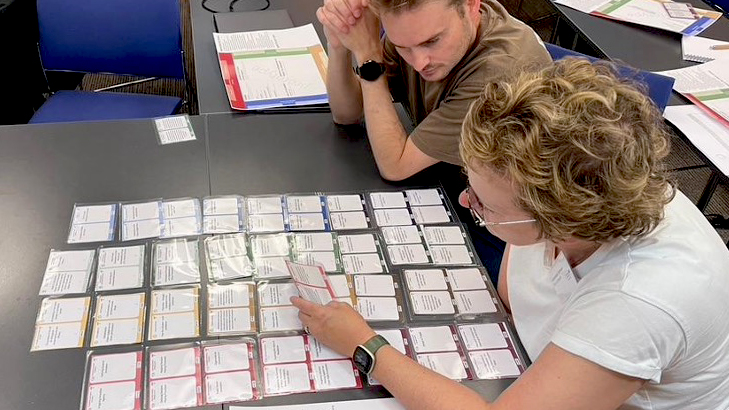Integrated and simultaneous
T4R is a European project in which interactive 3D models of cities - so-called Local Digital Twins (LDTs) - are being developed to help policymakers and citizens better understand the future of urban spaces in light of major societal challenges around climate, energy, housing, and green spaces. These tools support a more systemic approach to decision-making - seeing things in context and from multiple perspectives. What makes the project unique is that technology is not the central focus; instead, it is addressed alongside organizational, ethical, training, and knowledge-sharing aspects in an integrated and simultaneous way.
Train-the-trainer programme
Eight cities are participating in T4R, including the Municipality of Utrecht, with thirteen partners from six countries: the Netherlands, Belgium, Luxembourg, France, Germany, and Ireland. HKU is co-responsible for developing the train-the-trainer programme. Designers, teachers and researchers Willem-Jan Renger and Evert Hoogendoorn are working with German partner K8, Institute for Strategic Aesthetics (Saarbrücken), and the Belgian organisation All Digital, a European umbrella organization that supports the digital transition for professionals across Europe.
Building learning journeys
Trainers from six cities are involved in T4R. They will create tailored learning journeys based on 72 Micro Learning Units (MLU’s), fitting the context of their city or individual team members. Evert explains: “For these trainers, our metaphorical ‘tour guides’, HKU developed a toolset with 72 cards, one for each MLU, enabling them to string together learning sequences. We also created sample elaborations for five MLU’s to inspire partners on how to translate the base documents into didactic tools.” In Dublin, the two HKU lecturers, together with partner K8, led three workshops to explain the concept of ‘MLU journeys’ and get trainers from all cities actively engaged.

Four categories, three levels
The 72 MLUs span four key categories—called “frameworks”—that form the knowledge base civil servants need to responsibly develop a Digital Twin: the technical framework, the governance framework, the ethics, inclusion and democracy framework and the train-the-trainer framework. Each framework has three levels: beginner, intermediate, and expert. Willem-Jan notes: “Each city can build a learning journey for its colleagues based on local needs, selecting from the four frameworks and three difficulty levels. We explicitly encourage partners to design and offer ‘blended’ journeys.” For instance, a technical developer might receive expert-level units from the technical framework, complemented by beginner-level units from the governance or ethics framework. “The goal is to improve and facilitate conversations among specialists from very different fields of expertise.”
Activity guide
In Dublin, HKU presented the first format of the MLU set, using separate cards and canvases. There is, of course, still room for development. Willem-Jan: “Although the format was appreciated, especially for constructing learning journeys, there was also a desire for more diverse examples. So, in the coming period, we’ll develop an ‘Activity Guide’ with around ten engaging learning formats that can be linked to an MLU. These will range from individual to group use, and for online, hybrid, and offline contexts.” HKU will continue to support the cities in executing and tailoring their learning journeys.
Lifelong learning
Using Micro Learning Units, as in T4R, is part of a broader European movement. The aim is to accredit this type of education, just like formal education, so that it holds equal value in a professional career. It’s a way to future-proof Europe’s ambition of lifelong learning. Willem-Jan: “HKU is a frontrunner in Dutch higher education in this area, not only through T4R but also via the CYANOTYPES project. Although this development is still in its early stages and faces challenges, particularly in terms of accreditation, it puts HKU in a strong position for lifelong learning trajectories and more flexible education models. These insights are already being used in pilot projects within the Utrecht Creative Community, in which HKU is a strategic partner.”